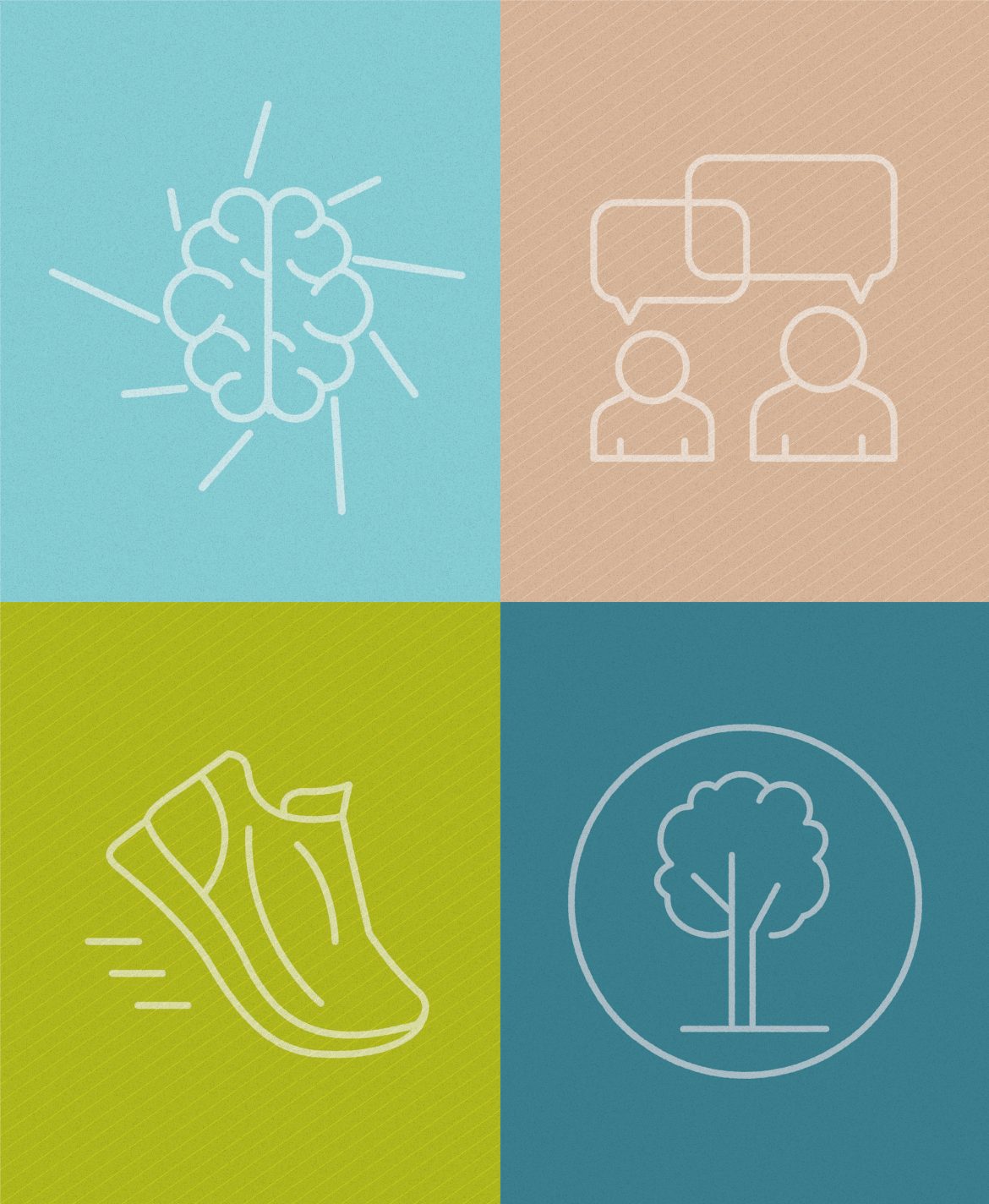Tackle the day with simple, powerful tips for the four pillars of wellness
Written by Cathy Carroll
Strong research is increasingly showing that mental, physical and spiritual health, along with societal factors, or social health, must be considered together in what makes a person healthy, said Dr. Tobias Dang, medical director of mental health and wellness for Kaiser Permanente of Washington. His work addressing this full spectrum of health has become his focus, in line with the philosophy of the national healthcare nonprofit with thirty-nine hospitals.
“Holistic can mean so many things,” said Dr. Dang, who is also a psychiatrist at Kaiser’s clinic in Capitol Hill, Seattle. “Kaiser Permanente has really embraced the idea of treating the whole person rather than treating a diagnosis or disease or certain body part or very compartmentalized pieces of the self.”
Dr. Dang outlined four aspects that work together to make a person healthy: the physical, mental, spiritual and social pillars. “Like the four legs of a chair, they hold a person together,” he said. “Focusing on one and not the others will, I think, leave something amiss.”

Dr. Dang offered some simple tips to address your four, interconnected elements of health:
Choose to move
Movement and exercise is a choice. Walk, run or hit the gym at least twenty to thirty minutes a day. Walking is the most simple, and just about everyone has access to it. If you’re starting a new type of exercise, start slowly to avoid injuring yourself.
If you haven’t been walking, go one block one week, then two blocks and build up gradually to 20 to 30 minutes per day. Or, for more, run around the block to begin and build up to 3 miles in three months. Think about it with a beginner’s mindset, like when you were a kid and got excited about playing something new.
Stretch or do yoga two to three times a week to keep your body flexible.
Be connected, wisely
Have a social aspect to each day. Talk with colleagues at work or with friends after work or at lunch. Limit social media. Volunteering or giving back in some way is shown to be uplifting. Meditate. Phone apps such as “Calm” can help begin meditation practice, help with sleep and ease low level anxiety.
Pace yourself
Aim to begin and end each day at fairly regular times. Begin the day slowly, with a ten-minute meditation or spiritual practice to set a relaxed and mindful tone for the day.
Return to the mindset to tackle what the day brings. Take breaks for a two- or three-minute meditation to reground and recenter yourself and get brief bouts of exercise, walking or climbing stairs for three or five minutes.
Avoid too much sugar or caffeine and eat a balanced diet of nutritional elements.
Ground yourself
Gain a better sense of perspective that not everything is in our control. It’s human nature to feel we have control over most things, and we can become frustrated, anxious and lost when we feel we’re not in control, which can cause suffering and stress.
A spiritual perspective can help us ground us, whether it’s through organized religion or another spiritual path or philosophy. It might be the belief in a higher power or simply that we need to learn how to accept things beyond our control.
Seek help for societal ills
Bankruptcy, homelessness and access to food and healthcare are significant stressful, mentally taxing social problems which must be addressed in preventing or treating physical or mental health illness.
Kaiser increased its focus on social health after the pandemic exposed social disparities, with minority groups suffering worse outcomes and incidence of disease. Racial unrest last year brought these disparities to the forefront of consciousness. Kaiser assesses patients’ social health to help identify a potential need beyond a physical complaint. Research shows social health issues compose 30 to 40 percent of what influences general health—a significant portion.







